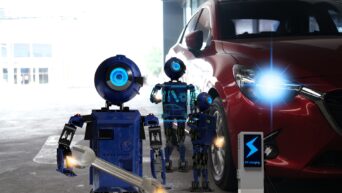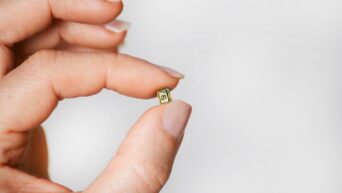
Credit: CBS News
It’s not an animal in the traditional sense.
Animals need to breathe oxygen. I breathe, you breathe, we all breathe for oxygen. We need to breathe because our cells’ mitochondria (y’know, the powerhouse of the cell) need oxygen to power themselves and keep us rolling. Even fish draw oxygen from water. Yessir, if it’s a multicell organism, it breathes oxygen, no ifs, ands, or buts. Well, except for one.
Researchers from Tel Aviv University have discovered a bizarre multi-celled organism that has no need for oxygen. Henneguya salminicola is a teeny, tiny parasite that makes its home in the muscular tissue of salmon. It can cause some weird skin conditions in its host, but it’s otherwise harmless. The funky thing, though, is that H. salminicola possess no mitochondrial genes. Not only does it not breathe oxygen, it literally couldn’t if it wanted to. And yet, despite this going against what we understand about animals, it goes right on with its business.

Credit: Stephen Douglas Atkinson/Yahalom
“It’s not yet clear to us how the parasite generates energy,” study author and Tel Aviv University professor Dorothee Huchon said in a press release. “It may be drawing it from the surrounding fish cells, or it may have a different type of respiration such as oxygen-free breathing, which typically characterizes anaerobic non-animal organisms.”
Based on the researchers’ hypothesis, H. salminicola somehow evolved a method to power itself without the need for oxygen, and once that was figured out, it gradually lost its mitochondria. We’ve seen this ability in simple organisms like mushrooms and amoebas, but never in anything multi-celled.
“It is generally thought that during evolution, organisms become more and more complex, and that simple single-celled or few-celled organisms are the ancestors of complex organisms,” Huchon added. “But here, right before us, is an animal whose evolutionary process is the opposite. Living in an oxygen-free environment, it has shed unnecessary genes responsible for aerobic respiration and become an even simpler organism.”
































